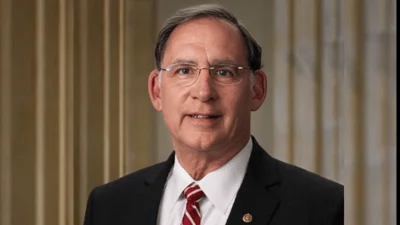Washington, D.C. -Today, Rep. Carolyn B. Maloney, Chairwoman of the Committee on Oversight and Reform, held a hearing to examine the benefits, opportunities, and challenges of electrifying the Postal Service fleet through the acquisition of the Next Generation Delivery Vehicle (NGDV).
“Electric vehicles are the vehicles of the future. To continue purchasing gas-guzzling vehicles is not only bad for the environment-it’s bad for the Postal Service, and bad for its customers." said Chairwoman Maloney in her opening statement.
The Committee heard testimony from Ms. Tammy L. Whitcomb, Inspector General of the United States Postal Service; Ms. Victoria K. Stephen, Executive Director of Next Generation Delivery Vehicle at the United States Postal Service; Ms. Jill M. Naamane, Acting Director of the Physical Infrastructure Team at the Government Accountability Office; and Mr. Joe Britton, Executive Director of the Zero Emission Transportation Association.
Witnesses raised concerns about flawed assumptions in the environmental and cost analyses that the Postal Service used to justify the purchase of gas-guzzling delivery trucks, and highlighted the potential cost savings from EVs.
* Ms. Naamane testified that GAO’s analysis “raises questions regarding the way in which USPS’s assumptions estimate the costs and benefits of the gas and electric NGDV." GAO found that the Postal Service used outdated estimates of gas prices, miscalculated maintenance costs for EVs, and ignored the benefits of lower emissions.
* In response to questioning from Chairwoman Maloney, Ms. Stephen committed to provide the Committee with the analysis that the Postal Service used to determine how many electric vehicles (EVs) to purchase.
* In response to Rep. Kelly’s question, Mr. Britton testified: “The Postal Service is set to save $4.3 billion if they electrify; it is more expensive to drive an internal combustion engine vehicle than an electric vehicle. And their model relies on a 50% discount on gasoline for the next 18 years. It is then taking the cost of a charger and inflating it by a magnitude of 10, and tripling the number of chargers, and then they’re assuming the range of these vehicles are half of what they can achieve."
* In closing, Chairwoman Maloney stated, “I call on the Postal Service to listen to the concerns of the Inspector General, the EPA, GAO, and this entire Committee, and conduct a new environmental impact study and a new cost estimate for electric vehicles."
Members and witnesses discussed how electrifying the Postal Service fleet is crucial to reducing carbon emissions, fighting climate change, and reducing our nation’s dependence on fossil fuels.
* Chairwoman Maloney in her opening: “Just yesterday the United Nations issued a major scientific report warning that without immediate action shifting from fossil fuels, we will not be able to keep global warming to acceptable levels. This Congress must help the world avert a climate disaster by moving from gas guzzlers to electric vehicles now."
* Rep. Raskin explained: “Climate change is the civilizational emergency bearing down on us.... The climate benefits of electrifying the Postal fleet are significant. The Postal Service’s 215,000 delivery vehicles burn about 200 million gallons of gasoline each year.... All together, the Postal Service’s gas guzzling fleet emits billions of pounds of carbon dioxide equivalent greenhouse gases every year."
Members and witnesses highlighted how the private sector is increasingly moving to EVs, which are more cost-effective in the long run due to lower maintenance and fuel costs.
* Rep. Huffman stated: “It would be really hard to cook up a model or a business case that favors lumbering, internal combustion vehicles that get an average of 8.6 miles per gallon over EVs, the same EVs that are going to be powering the fleets of FedEx, Amazon, UPS, and DHL. But that’s exactly what the Postal Service did with this contract and this program, calling for vehicles that are built for obsolescence."
* In response to Rep. Kelly, Mr. Britton said: “If we had a model that was based in reality and based in fact, it would be an easy answer and a no-brainer that is reflected in what their competitors are doing today.... Everybody is moving in this direction, not from an ESG sensibility but because it’s good for business and good for their bottom line."
The Postal Service agreed with Members that they should be working towards a transition to EVs and called on Congress to provide additional funding to expedite the transition.
* In response to Rep. Raskin’s question on whether the Postal Service’s preference is to electrify 100% of its fleet if funding were made available, Ms. Stephen testified, “if funding was made available to us, we’d absolutely adjust our plans."
* In response to Rep. Lynch asking about electric vehicles’ superior performance and environmental benefits, Ms. Stephen said, “Of course electric vehicles are better. 200%."








